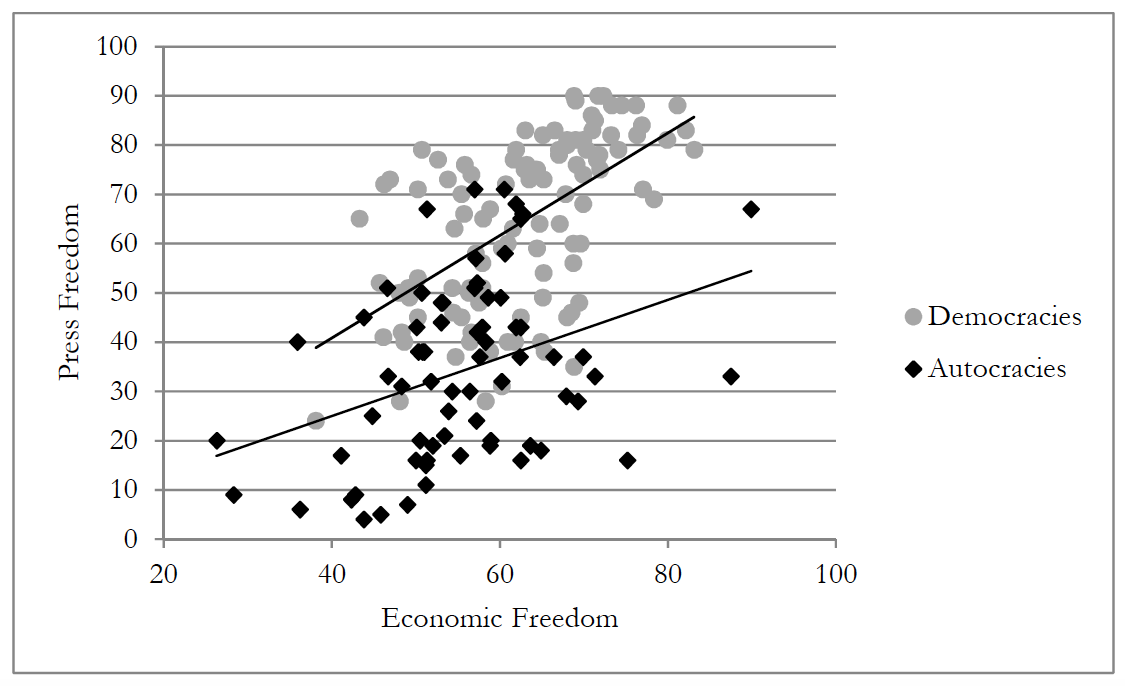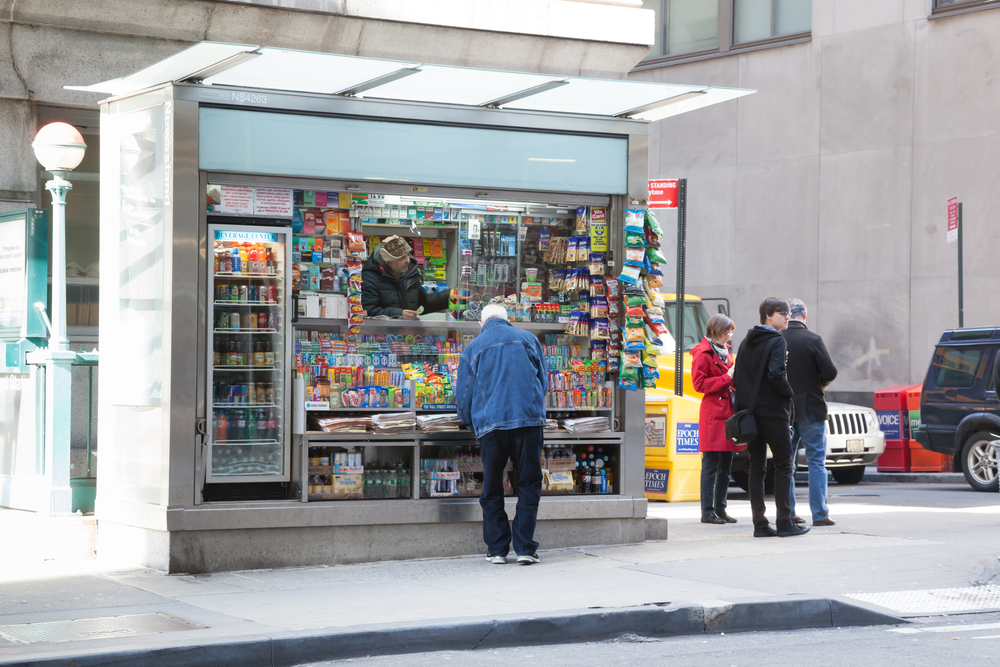At a time when so-called “democratic socialism” is rising in prominence, we are accustomed to hearing about the supposed compatibility of socialism and political freedom. Not only is the dismantling of economic freedom compatible with democracy—we are told—but it is essential to its survival.
“Moving towards socialism involves subordinating the economic power of capitalists to the social power of the people,” write Mathieu Desan and Michael McCarthy in a recent essay for Jacobin. “…Only when the private decisions that have massive public implications are subjected to popular control will we have a democratic society.”
In contrast, the Hayek-Friedman hypothesis holds to the opposite view, stating that without economic freedom, our political institutions quickly give way to the arbitrary and impersonal impulses of governmental control and the “momentary majority.”
“Political freedom means the absence of coercion of a man by his fellow man,” writes Milton Friedman in the introduction to his book, Capitalism and Freedom. “The fundamental threat to freedom is power to coerce, be it in the hands of a monarch, a dictator, an oligarchy, or a momentary majority. The preservation of freedom requires the elimination of such concentration of power to the fullest possible extent and the dispersal and distribution of whatever power cannot be eliminated—a system of checks and balances.”
For Friedman, the market serves as such a system, allowing “economic strength to be a check to political power rather than a reinforcement.”
The theory and its implications are clear enough, but is it a testable claim? What can we observe about the association between economic freedom and political stability?
In a recent paper for the Journal of Institutional Economics, professor Christian Bjørnskov seeks to explore this relationship, specifically by observing the influence of economic liberalization on freedom of the press. Whereas voting participation and electoral data may tell us something about a society’s political freedom, Bjørnskov believes that freedom of the press tells us much, much more.
“Democracy has little meaning if voters do not have access to proper information that is not controlled by government or other large interests, i.e. if society enjoys press freedom,” he writes. “…Focusing on press freedom thereby offers a way to formulate more precise hypotheses of the multitude of transmission mechanisms that could connect economic freedom and press freedom.”
To conduct the study, Bjørnskov combined data from the Freedom House index of press freedom and the Heritage Foundation Index of Economic Freedom, assessing nearly two decades of political and economic activity.
The conclusion: “Overall, increased market openness is strongly associated with press freedom, while an additional influence arises from the rule of law in democracies only.”

The methodology and results are summarized as follows:
Testing the association between the overall Heritage Foundation Index of Economic Freedom as well as its four constitutive components and the Freedom House index of press freedom shows that the association is statistically strong.
In particular, measures of market openness – composed of the freedom to trade and invest internationally and the existence of transparent and equitable rules regulating investment and financial markets – and regulatory freedom – defined as the absence of licensing and other directly limiting policies, hiring and firing regulations, and the existence of stable, predictable and non-inflationary monetary policy – positively affect press freedom. However, the results also suggest that economic freedom affects press freedom more when veto institutions are strong such that reforms can be secured in the future by veto players. As such, the estimates provide statistically strong and robust evidence for the Hayek-Friedman Hypothesis when formulated as a theory of press freedom.
An important question nevertheless is if the results are also of political and social significance, which the estimates suggest they are. The clearest example is liberalizing market openness by one standard deviation (approximately 12 points), which results on average in an improvement of press freedom of six points. This change corresponds to 40 % of a standard deviation or a full within-country standard deviation; the corresponding numbers in the democratic subsample are 60 and 154%. Compared to any other identified influence on press freedom, only getting rid of a Communist dictatorship or experiencing a successful civilian coup that leads to a dictatorship are associated with similar or larger changes in press freedom.
Whereas other studies have already demonstrated the the range of other social and political benefits—from overall growth and development to more stability and peace to increased subjective well-being—Bjørnskov’s latest study gets us closer to assessing the influence of economic freedom on the health of the political institutions themselves.
Contrary to the popular refrains about the undemocratic nature of modern-day capitalism, we see the coexistence of open markets with freedom of the press and the flourishing of much more. In turn, we should proceed not by forming new bastions of centralized power, or “popular control,” as the democratic socialists call it—creating new mini monarchs, micro-committees, and community politburos—but on increasing true economic freedom for all and diminishing barriers to entry where they actually exist.
“The results in this paper suggest the value of policies and institutions of economic freedom in solving political problems associated with asymmetric information,” Bjørnskov concludes. “As such, economic freedom not only makes countries richer, but may also have an intrinsic social and political value.”
Read the full paper here.

